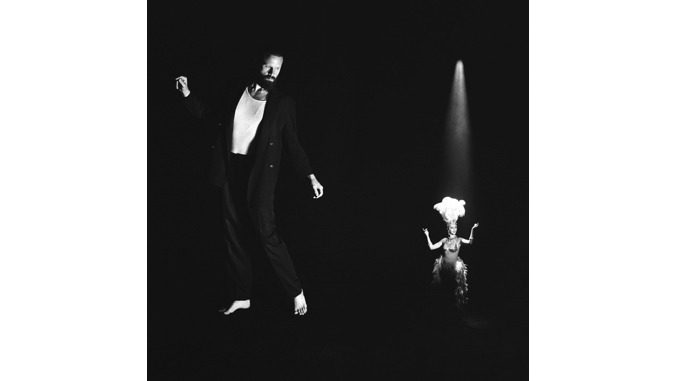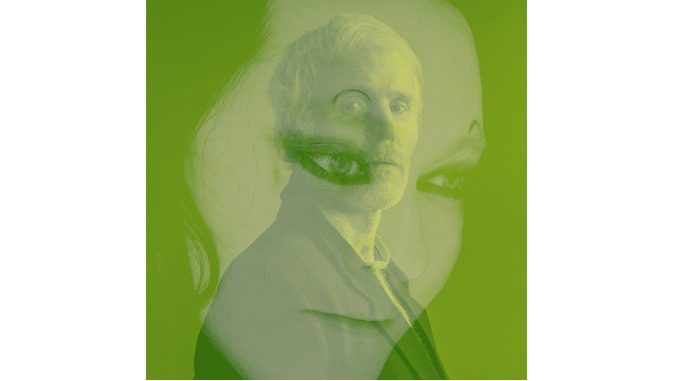A decade or so ago, Josh Tillman created the Father John Misty character after he realized how much more people paid attention to his stage banter than his songs, recorded then under the name J. Tillman. “I could see the audience come to life,” he said in 2012. “Their eyes would light up and they were listening and captivated, and then I would start playing … and their eyes would glaze over.”
That experience, which happened over and over again as he released eight albums that were pretty much ignored completely, led him to create the persona that the audience was actually responding to, this time as the singer/songwriter himself, not just the pseudo-stand-up comedian performing between the melancholic folk songs.
But whether through unnamed major life events or simply personal growth, Tillman outgrew Father John Misty at some point during the Pure Comedy press cycle, when he was the most visible and talked-about indie musician on the planet. The vast majority of the qualities that made Father John Misty such a lovable, yet cynical songwriter were gone by 2018’s God’s Favorite Customer, his first album without the extra snark.
Fast-forwarding four years to the present day, Father John Misty is basically nowhere to be seen on Chloë and the Next 20th Century. Tillman sounds like a completely different artist from the one who wrote “The Night Josh Tillman Came to Our Apt.”—and that’s not a bad thing. After the many layers of irony and satire have been stripped away from his songwriting, we’re left with the prettiest and most heartfelt collection of songs he’s released to date.
The differences between Chloë and the rest of Father John Misty’s discography are immediately apparent: Album opener “Chloë” begins with old-timey horns before launching into a 1920s-esque big band track that sounds like some long-lost entry in the Great American Songbook. It wouldn’t be surprising to see Tillman bust out a top hat and tap shoes for some of the instrumental breaks at any of his upcoming shows where he’ll be playing with full symphonies.
Though “Chloë” is a major departure for Tillman musically, it also represents some of his most vivid storytelling thus far, telling the tale of his narrator’s relationship—unclear whether romantic or not—with Chloë, “a borough socialist” who likes “drinks with a certain element of downtown art criticism.” The details are strong throughout, from the specific (“How you could have dropped the cigarette on the trip your boyfriend’s canoe flipped”) to the metaphorical (“Her soul is a pitch black expanse”). It all ends with one of the most heartbreaking and striking images in Father John Misty’s discography, Chloë’s apparent suicide: “Summer ended on the balcony / She put on Flight of the Valkyries / At her 31st birthday party / Took a leap into the autumn leaves.”
Those two main strengths of “Chloë”—the expanded instrumentation, complete with a full orchestra, and a new propensity to tell stories with vivid detail, absent any hint of that trademark snark—are what makes the whole of Chloë and the Next 20th Century such a songwriting triumph that continues to reveal more about itself upon each listen. Fans of Father John Misty’s past, more straightforward tracks, from the heavier “Hollywood Forever Cemetery Sings” to the catchy folk-rock of “Total Entertainment Forever,” might be disappointed at first to hear a full album that takes after Randy Newman, or the kind of songs that would’ve soundtracked a Gene Kelly dance routine. But let its full beauty sink in, and there’s just so much to love here.
Though we’ve heard some indie favorites experiment with strings lately—think Angel Olsen’s All Mirrors, Radiohead’s A Moon Shaped Pool or Tillman’s old band Fleet Foxes’ Crack-Up—Father John Misty is the first of the bunch to fully commit to it. Chloë isn’t one of those “Oh, they added strings!” albums—it’s a full-blown symphony record where each instrument gets its time to shine. It’s still largely set to the backdrop of Misty’s ‘70s-indebted folk-rock, but it just feels like such a leveling-up by an artist who has been the standard-bearer of his genre for a full decade now.
Take “Q4,” for instance, perhaps the closest thing to a prototypical Father John Misty song on Chloë. The arrangement on “Q4” sounds like something entirely new to his catalog, like an expansive track that’d fit in some golden-age Western—or at least a Tarantino one. Propelled by harpsichord and a gorgeous string section that takes center stage on the bridge, Tillman’s voice soars as he imagines a writer named Simone Caldwell who stole the story of her memoir from her deceased sister. He takes a shot at the press—something he has loads of experience with—and publishers both, who say the book was “just the thing for their Q4 / ‘Deeply funny’ was the rave refrain.”
Chloë’s music offers more variety than ever before—just look no further than the song that follows “Q4,” “Olvidado (Otro Momento),” which sees Tillman experiment with bossa nova. Going from the wide-open plains to the beaches of Brazil, the transition shouldn’t work as well as it does, but the orchestral backing behind Tillman’s voice works wonders, particularly the fluttering piano and the woodwind section. Elsewhere, lead single “Funny Girl” would fit alongside any slower Tony Bennett classic, while the strings on “Only a Fool” would feel right at home on the score for Toy Story or even Ratatouille.
Perhaps the most understated instrumentals on Chloë are its most striking: The piano at the beginning of “Kiss Me (I Loved You)” is almost identical to that on “I Love You, Honeybear.” Yet on its sonic relative, seven years after the fact, there’s no driving percussion to propel it to an anthemic love song. Tillman’s beat up after the marital strife that marked God’s Favorite Customer, his voice shaky, distorted and distant. Gone are the “mascara, blood, ash and cum on the Rorschach sheets where we make love,” and it feels as if he’s now on the other side of the “Everything is doomed and nothing will be spared” refrain. Now, broken and emotionally spent, he simply pleads, “Kiss me like long ago,” before admitting, “Our dream ended like dreams do / But kiss me / I loved you”—note the past tense.
But while “Kiss Me (I Loved You)” feels as if Tillman’s very much at the center of it, Chloë overall is the first Father John Misty album that isn’t about Father John Misty or Tillman himself. Other characters take the spotlight here, whether it’s Chloë, Simone Caldwell or someone else entirely. Tillman inserts his first person throughout, but the album plays like a collection of short stories, rather than a dramatized love story (Honeybear), some profound statement on the world and politics (Pure Comedy), or a record about the breakdown of his marriage (God’s Favorite Customer).
Take “Goodbye Mr. Blue,” perhaps the album highlight. Over a fingerpicked guitar and a melody that more than just recalls “Everybody’s Talkin’” by Harry Nilsson, Tillman sings about the post-breakup death of the cat he got while in the relationship. It’s a devastating song set to a gorgeous instrumental—“That Turkish Angora is ‘bout the only thing left of me and you,” he sighs before adding, “One down, eight to go, but it’s no less true / Don’t the last time come too soon?” referring to a cat’s supposed nine lives. Mr. Blue dies in his arms while he remembers when “We used to lay around here laughing at what freaks out there were trying to prove” (“Chateau Lobby #4?”). His most heartbreaking realization is that if the cat had died earlier, it could’ve been the catalyst to bring them back together, but it’s far too late for that now.
That sort of narrative storytelling marked by vignettes is what sets Chloë apart from his past work, though he still manages to sneak in a few “Holy Shit”-esque lines about love that tear at the heartstrings, like the final line of “Olvidalo (Otro Momento).” After a song half-sung in Spanish about wanting to tell his partner (or ex) something, but being unable to do so, he sings, “All I want to say is words have failed me many times before / But never so completely as with you.” It distills what’s best about Tillman’s songwriting: It doesn’t matter how many satirical detours or funny left turns he takes, he can always bring it back to some simple, lovely lyric to sum everything up.
Which brings us to the most classic Father John Misty lyrical track on Chloë, the album’s closer, “The Next 20th Century.” The only song that gets dark and angry, it opens with, “The Nazis that we hired for our wedding band / Played your anthem like I wasn’t there for the father/daughter dance.” Employing sarcasm in a way that he hasn’t done since Pure Comedy, the track gives way to a sweeping string line that recalls something Jonny Greenwood would have arranged before it eventually gives way to a loud-as-hell, fuzzed-out guitar solo, the most unexpected moment on the whole record (a moment that will kill live).
Like he did on Pure Comedy’s closer “In 20 Years Or So,” a song about how we’re all going to die from the effects of global warming, but it’s all OK because we can enjoy the simple things with our loved ones, Tillman first gets morbid (“And now things keep getting worse while staying so eerily the same / Come build your burial grounds on our burial grounds / But you won’t kill death that way”) before ending it all with a simple sentiment that makes life just barely worth living: “I don’t know ‘bout you / But I’ll take the love songs and the great distance that they came.” For a record that seems so incredibly different than anything he’s done before, it closes on a familiar note.
Chloë represents a very stark, yet impressive left turn for Tillman, a record that sees him grow not only as a narrative lyricist, but also a master arranger. Nothing here is as immediate as anything he’s released before—the singles don’t exist on their own as well as, say, “Mr. Tillman” or “Real Love Baby”—but it’s likely the best full album of his now-10-year career. It’s the biggest risk he’s taken since donning the Father John Misty character and leaving one of the biggest bands in late 2000s/early 2010s indie rock.
But it all pays off—it’s his masterpiece. Few artists today have an album like this in them, and it cements Tillman’s place among the best singer/songwriters around. It’s gorgeous. It’s heartbreaking. It’s timeless. It’s the sound of an artist who really went for it and succeeded wholeheartedly.
Steven Edelstone is the former album reviews editor at Paste and has written for the New York Times, Rolling Stone, the Village Voice and more. All he wants is to get a shot and beer combo once this all blows over. You can follow him on Twitter.
Revisit Father John Misty’s 2012 Daytrotter session below.




